Top 7 Best Reasons to Add Sprouted Grain Bread to Your Diet
Whole-grain and sprouted grain bread are both better than white bread made with processed flour. However, compared to other whole-grain bread, sprouted grain ... read more...bread offers more benefits. Sprouted grain bread is made from whole grains that have begun to sprout, or germinate. Continue reading to find out more about the benefits of bread made from sprouted grains!
-
Flour, or ground grains, are commonly used to make bread. White bread only includes a portion of the grain, but whole-grain bread contains the whole grain. During processing, the majority of the beneficial nutrients, including fiber, vitamins, and minerals, are lost in both of them.
Because sprouted grain bread uses the entire grain, they are nutritionally comparable to bread made with whole-grain flour. Compared to bread made from processed flour, both types are better. They are both naturally higher in fiber and nutrition, although white flour is frequently enriched with vitamins and minerals to make up for what is lost during processing. Additionally, a variety of whole grains and legumes are frequently included in sprouted grain bread. Furthermore, the sprouted grain bread's protein is complete, including all nine necessary amino acids, thanks to the use of legumes.
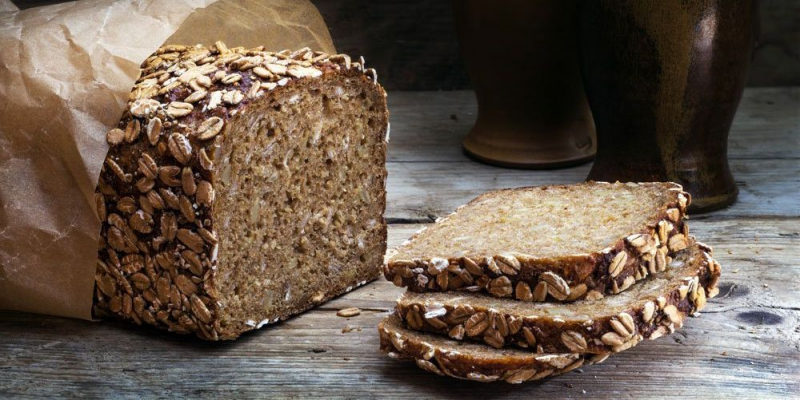
Made From Whole Grains, Which Improves Its Nutritional Value 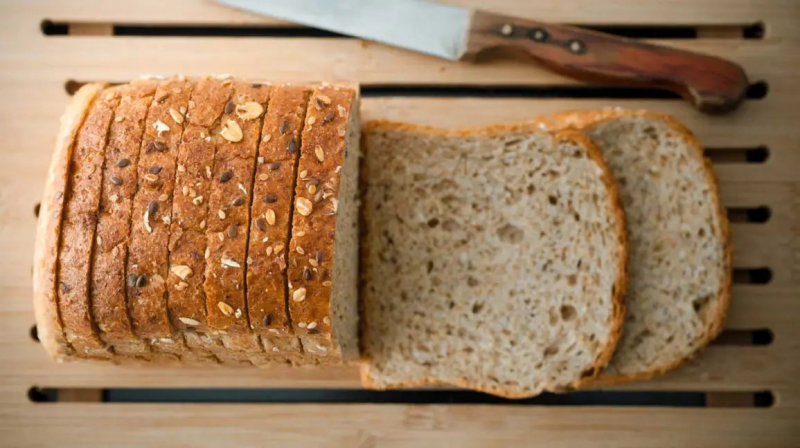
Made From Whole Grains, Which Improves Its Nutritional Value -
The starch in the grains is partially broken down during sprouting, reducing the number of carbs. According to one research, compared to 12-grain bread's 44 grams of carbs, sprouted grain bread had the lowest at 34 grams per 4-ounce (110-gram) portion.
Additionally, sprouted grain bread had the lowest glycemic index as compared to 11-grain, 12-grain, sourdough, or white bread because of its reduced carb and greater fiber content. The glycemic index measures how quickly a food will increase your blood sugar levels. For those who have diabetes or high blood sugar, sprouted grain bread is a particularly smart decision. Additionally, during the sprouting process, the grains absorb water, resulting in sprouted grains having fewer calories than whole-grain flours. Thus, replacing other types of bread with sprouted grain bread may help people lose weight.
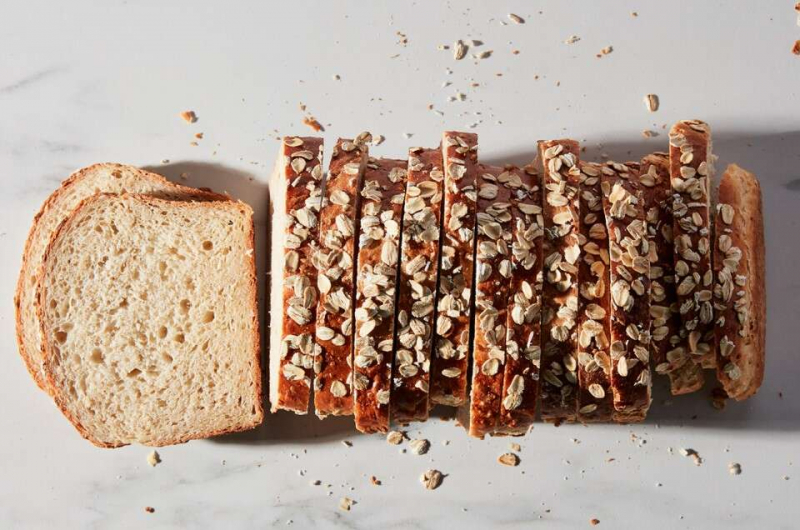
May Aid Weight Loss and Blood Sugar Control Due to Its Lower Carb Content 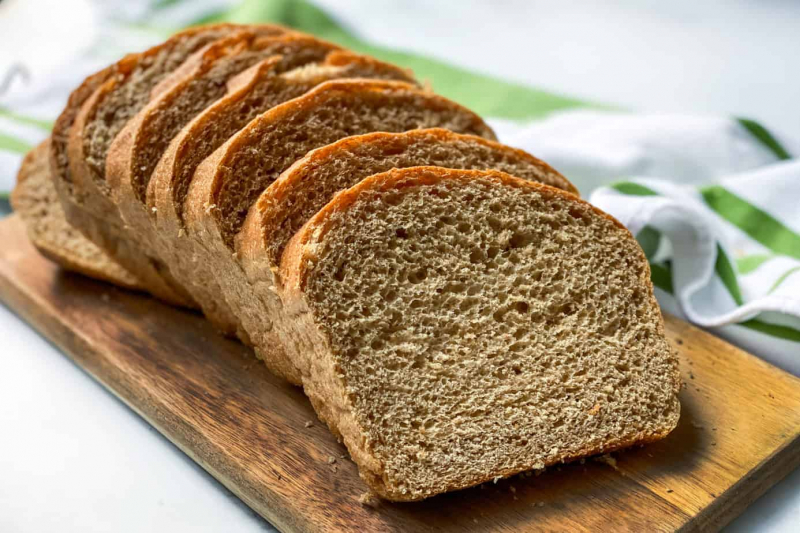
May Aid Weight Loss and Blood Sugar Control Due to Its Lower Carb Content -
Grain that has been sprouted has more protein, fiber, B vitamins, and vitamin C than other types of bread. The sprouting process produces more of these nutrients while also removing antinutrients, which are compounds that prevent nutrients from being absorbed.
Amino acids in the grains are increased during sprouting. Because of this, sprouted grain bread has more protein than whole-grain bread. Comparing sprouted grain bread to 12-grain bread, which has 11 grams of protein per serving, sprouted grain bread has about 15 grams. Additionally, sprouted grain bread has more fiber than other types of bread. Sprouting increases nutrients while decreasing anti-nutrients. After cooking, phytic acid is an antinutrient that is still present. Calcium, iron, and zinc absorption are all blocked by it. The phytic acid content of grains and legumes is greatly reduced by sprouting, which increases iron absorption by up to 50%. According to one research, sprouting wheat significantly increased iron absorption by over 200%.
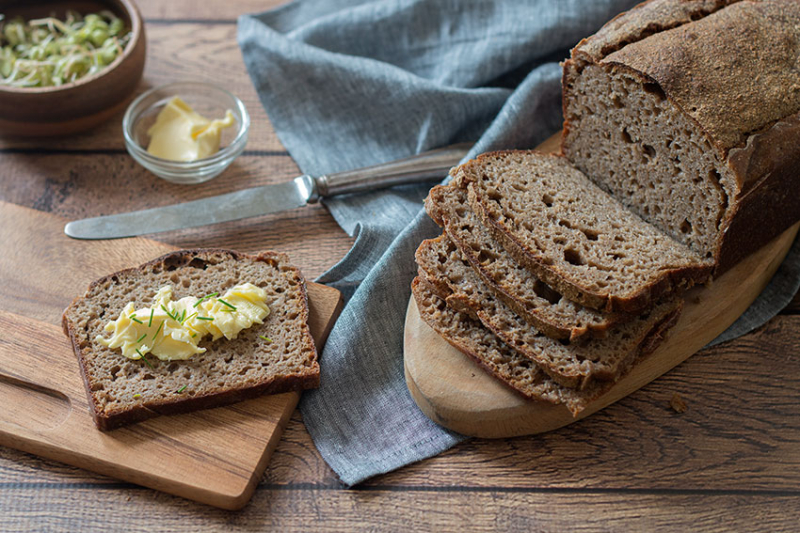
Higher in Important Nutrients and Lower in Antinutrients 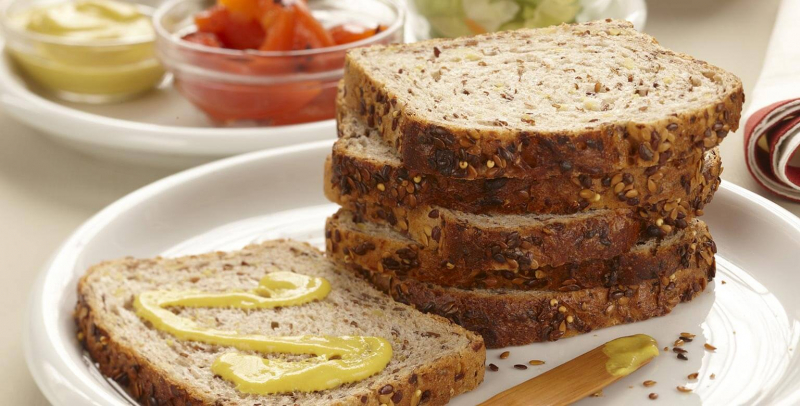
Higher in Important Nutrients and Lower in Antinutrients -
Studies have demonstrated a relation between sprouting whole grains and improved digestibility. The starch in the grains is broken down during the sprouting process, making them easier to digest.
Additionally, they contain more enzymes than unsprouted grains, which help in the digestion of the food you eat. Phytase and amylase levels rise during sprouting, in particular. A chemical is known as lectin also has an impact on digestion. Lectins are part of a plant’s defense mechanism. Grains frequently contain high levels of lectins, which have been connected to autoimmune disease, chronic inflammation, and leaky gut. As seed sprouts, the plant metabolizes lectins. As a result, lectin levels in sprouted grains may be lower than in their unsprouted counterparts. According to one research, wheat's lectin content decreased by around 50% after 34 days of sprouting.
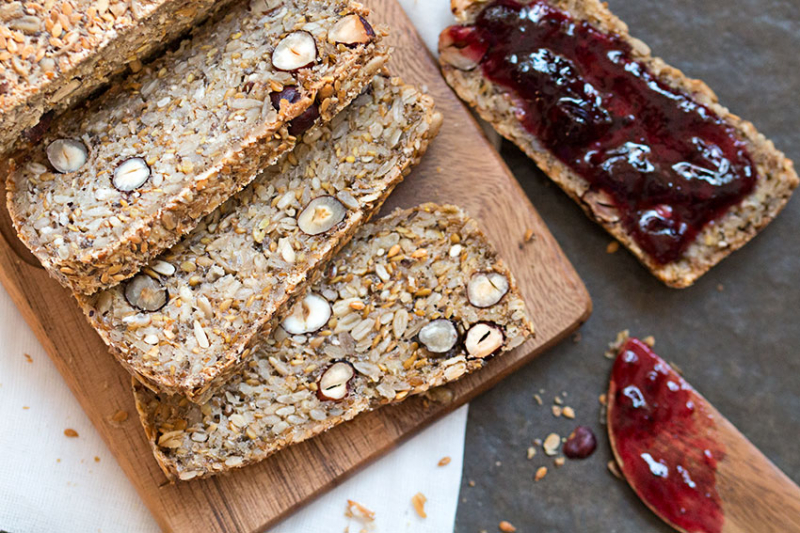
May Be Easier to Digest Due to Higher Enzyme and Lower Lectin Levels 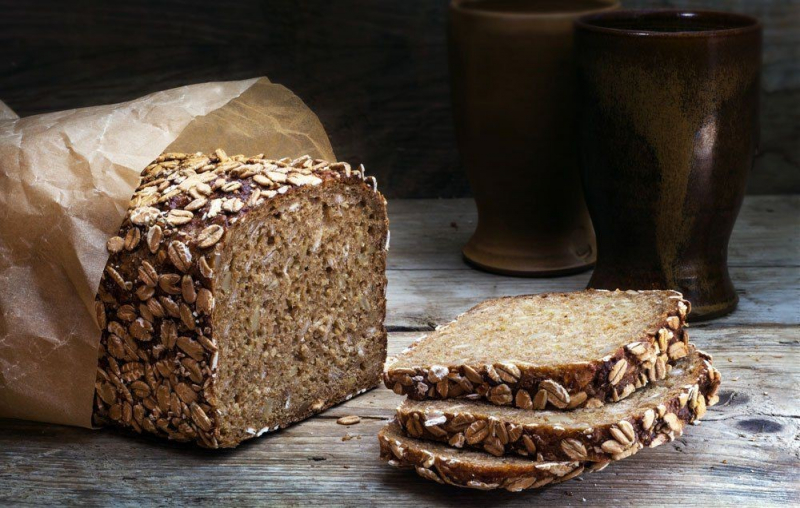
May Be Easier to Digest Due to Higher Enzyme and Lower Lectin Levels -
The chewy texture of bread is created by gluten, a sticky protein present in wheat, barley, rye, and spelt. Due to its possible negative impacts on health, it has recently attracted a lot of attention.
Inflammation, leaky gut, irritable bowel syndrome (IBS), and other health issues have all been linked to gluten in some people. It has been demonstrated that sprouting can reduce the amount of gluten in wheat by up to 47%, making sprouted grains potentially more tolerable. But sprouting doesn't completely get rid of gluten. Avoiding sprouted grains that contain gluten is recommended if you have celiac disease or gluten intolerance. Sprouting gluten-free grains such as quinoa, corn, and rice are better options for you in this case.
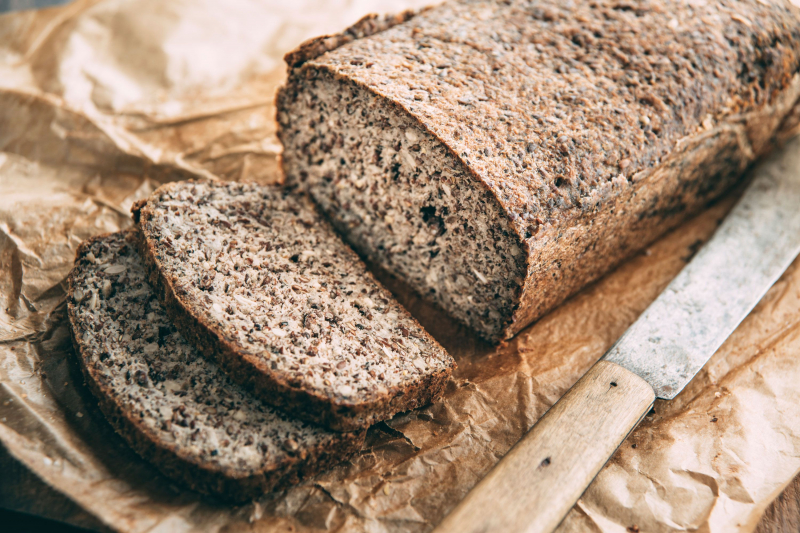
Lower in Gluten, Which May Improve Tolerability 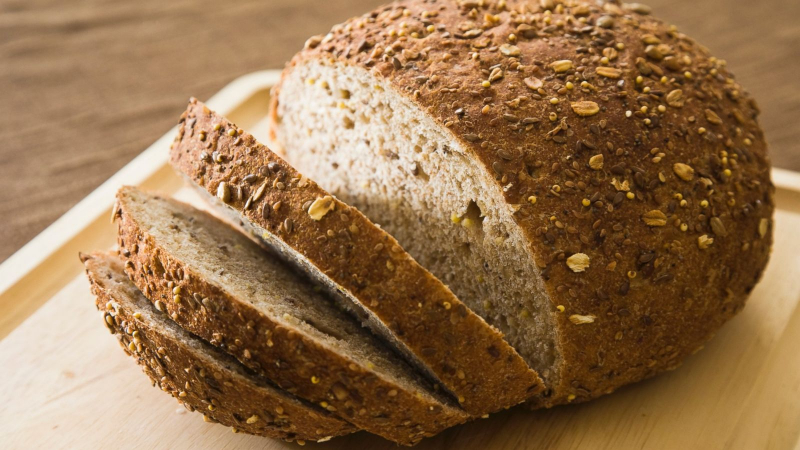
Lower in Gluten, Which May Improve Tolerability -
Grain sprouting enhances beta-carotene, vitamin C, and E content as well as a number of antioxidants. Antioxidants are chemical compounds that work to prevent free radicals, harmful molecules that cause oxidative stress, from damaging your cells.
Numerous chronic diseases, including diabetes, cancer, and heart disease, have been related to oxidative stress. Antioxidant-rich diets may help prevent certain disorders. According to one study, sprouting amaranth for 78 hours raised phenols by 829%, flavonoids by 213%, and antioxidant activity by 300-470%. Similar research on millet showed that sprouting also raised levels of phenols and flavonoids. It's simple to increase your dietary intake of antioxidants by swapping to sprouted grain bread with regular bread.
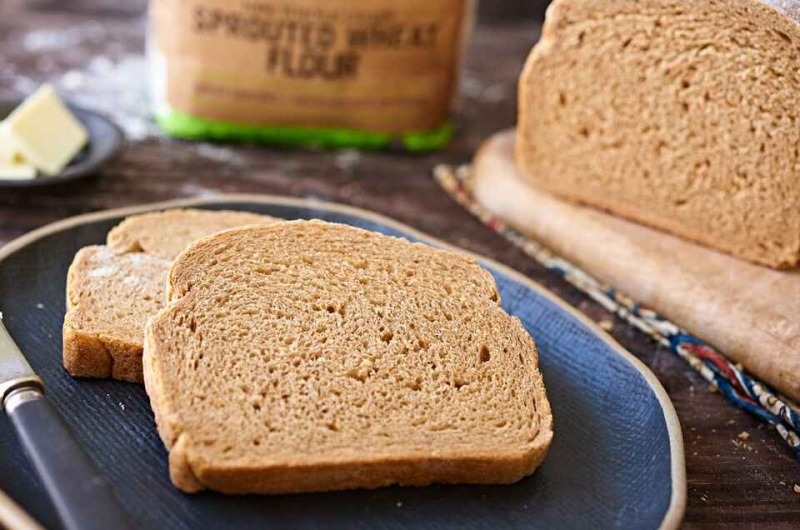
May Offer Protection From Chronic Diseases Thanks to Higher Antioxidant Levels 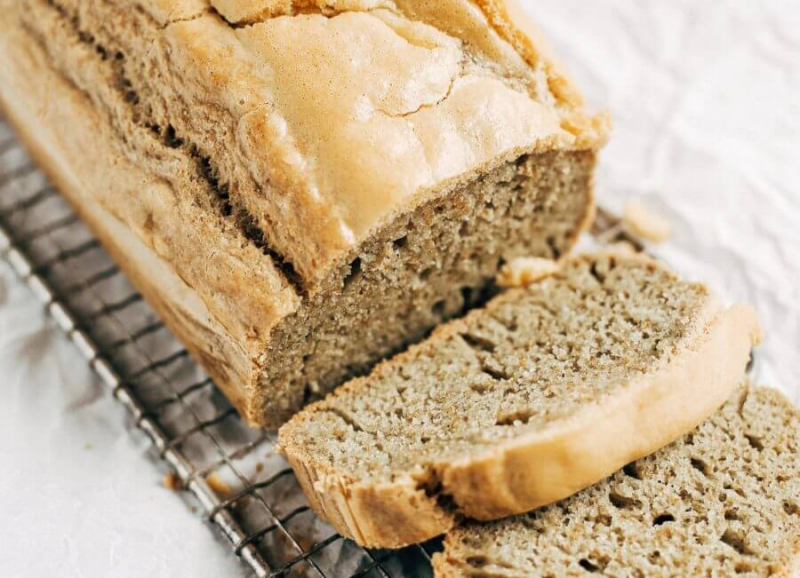
May Offer Protection From Chronic Diseases Thanks to Higher Antioxidant Levels -
Nowadays, getting bread made with sprouted grains is not difficult. You may get it in your local grocery shop, health food store, or farmers' market. Or you can also make your own by following one of the many recipes available online.
The refrigerator or freezer section is where you'll find most sprouted grain bread. If you're hoping for fluffy white bread, sprouted grain bread won't do because it tends to be thicker and heavier than bread made from flour. It's ideal for making toast, though. Once it has been roasted, you might not notice the difference in texture. Sprouted grain bread might be a more nutrient-dense option than regular bread if you are not gluten sensitive and are not on a diet that restricts your intake of carbs.
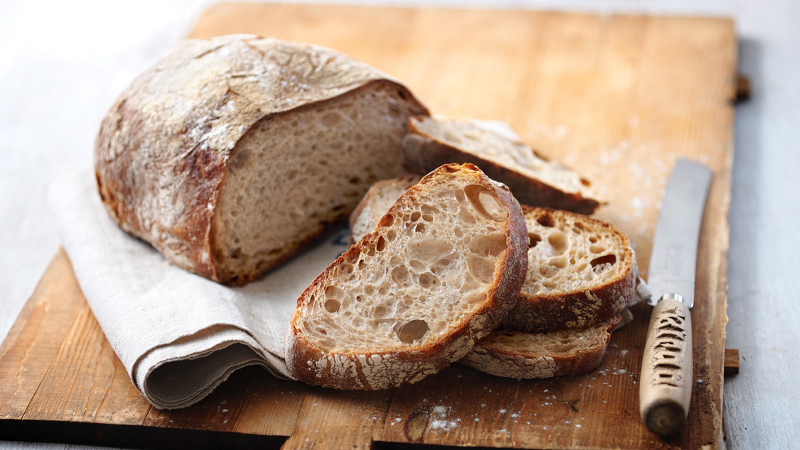
Easy to Add to Your Diet 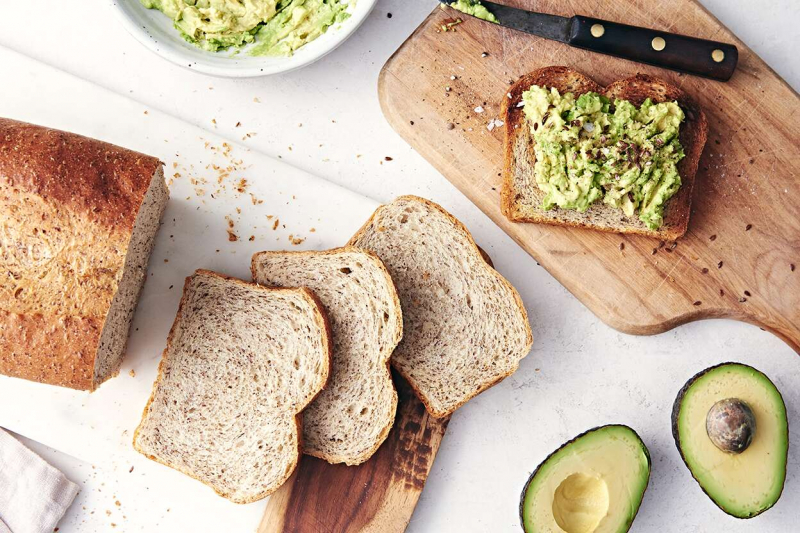
Easy to Add to Your Diet




























